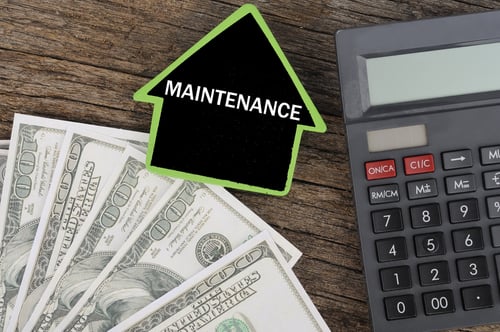
Maintenance is an inevitable occurrence in any rental property. After all, your home requires maintenance, so your rental property is no different. Keeping up with maintenance tasks and encouraging renters to report issues is essential. If maintenance issues or damages go unacknowledged for too long, it can result in long-term rental damage. Can landlords charge for damages, and how can landlords apply tenant maintenance charges? Keep reading as we go over some of the differences between tenant and landlord maintenance tasks.
Can Landlords Charge for Maintenance?
Ultimately, tenants are responsible for reporting maintenance concerns. However, it can turn into long-term damage if tenants don’t report issues or damages to the landlord or property management team. In this case, landlords may charge tenants or take a portion of their security deposit for damages.
When tenants report maintenance issues in a rental, landlords are obligated to take care of them in a timely matter. If damages result from landlord negligence, they may not apply tenant maintenance charges. Next, let’s go over how landlords can address tenant maintenance charges.
How Landlords Can Address Tenant Maintenance Charges
Discovering long-term damage in your rental property during or after a tenant moves out is frustrating. In addition, some damages are costly or time-consuming to repair. So, what can landlords do about tenant damages?
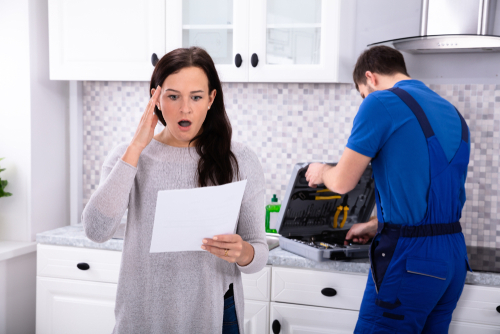
Tenants are responsible for damages as a result of:
- Improper use of appliances
- Failing to notify the landlord of maintenance issues
- Overloaded electrical outlets
- Disabling or removing safety features
- Damages beyond normal wear and tear
If you notice any damages during or after a tenant’s stay, it’s essential to address them promptly and professionally.
If the tenant is at fault for damages, landlords can go forward with tenant maintenance charges. There are a few ways to go forward with charges, depending on when the damage occurred and how bad it is. For example, landlords can deduct money from a tenant’s security deposit, charge them directly during their tenancy, or file in small claims court.
Either way, it’s crucial for landlords to fully document damages and issues within the rental during an inspection. If there’s no documentation or proof of damages, it can be hard to charge tenants for negligence. Next, let’s go over who’s responsible for the various maintenance tasks at a rental property.
Who Is Responsible for Maintenance Tasks?
Both landlords and tenants are responsible for maintenance within a rental. However, their roles are a bit different. For example, tenants must maintain sanitary conditions, follow occupancy codes, and report issues within the rental promptly. On the other hand, landlords must repair damages, comply with building codes, and ensure all vital services are working.
When damages pop up, it’s extremely easy to push the blame onto someone else. But, when your responsibilities are clear from the start, you need to follow through. Additionally, landlord-tenant responsibilities listed in the lease must be followed diligently during an occupancy. Here are some common rental property maintenance tasks to avoid tenant maintenance charges.
Maintenance Procedures to Avoid Tenant Maintenance Charges
All tenants want to live in a safe and habitable environment. However, tenants have several responsibilities that contribute to a well-maintained environment. Here are a few standard maintenance procedures for tenants.
- Follow Housing and Occupancy Codes
- Report Maintenance Concerns Promptly
- Seasonal Maintenance Tasks
- Keep the Property Free of Safety Hazards
- Maintain a Sanitary Environment
Follow Housing and Occupancy Codes
First, tenants must comply with all local codes and occupancy standards. Additionally, tenants must follow the tasks and expectations listed in the lease agreement.
For example, most rental agreements have a standard policy of no more than two occupants per bedroom. So, tenants must follow these procedures and avoid long-term house guests. After all, most people in the home can result in higher utility costs and more extensive damage.
Report Maintenance Concerns Promptly
If there happens to be a maintenance concern within your rental home, it’s essential to report it right away. Likewise, if you find problems or damages, reach out to your landlord or Baltimore property managers immediately to find a quick solution.
If tenants don’t report maintenance concerns or damages, a landlord could hold them responsible. After all, the maintenance problem can’t be fixed if it’s not appropriately addressed.
Seasonal Maintenance Tasks
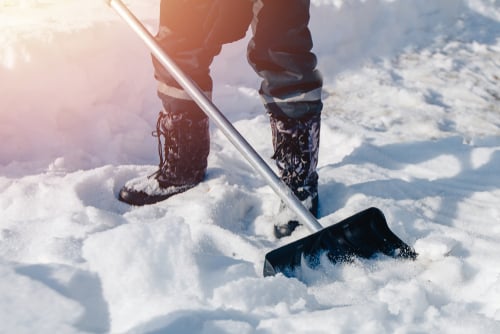
Typically, tenants in a single-family property are in charge of seasonal maintenance tasks. On the other hand, landlords will normally take care of seasonal procedures in multi-family buildings. Some of the most common seasonal maintenance tasks in a rental property include:
- Shoveling sidewalks, driveways, and walkways
- Spreading salt during icy conditions
- Raking up leaves and debris from the yard
- Mowing the lawn
Keep the Property Free of Safety Hazards
Like how you’d keep your home clean, you also want to keep the property free of safety hazards. After all, you want to avoid creating a safety threat to you and any guests you have on your property. Some standard safety hazard issues in rental properties include:
- Emergency exits blocked with tenant’s personal items
- Personal items left too close to essential equipment like the water heater or breaker box
- Smoke detectors or carbon monoxide detectors are tampered with
These situations can pose an unnecessary risk to tenants and potential liability for landlords. That said, tenants must be aware of safety hazards and avoid them at all costs.
Maintain a Sanitary Environment
It goes without saying that maintaining a sanitary living environment is one of the most essential maintenance procedures. Living in unsanitary conditions can lead to property damages and health concerns. As such, tenants must keep their rental units clean and well-maintained.
Neglected food, trash, and debris in a rental property can attract insects or rodents, which creates another issue. So, to keep your rental home free of damages, health issues, and pests, it’s crucial to maintain a sanitary environment.
What Are Some Landlord Maintenance Responsibilities?
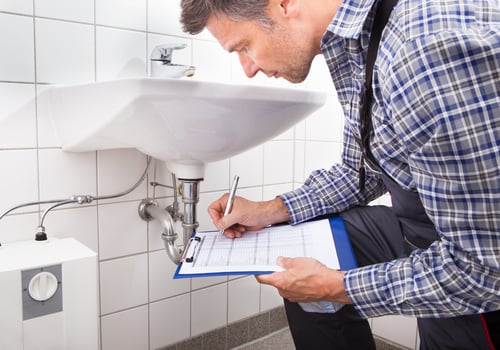
When owning rental properties, landlords hold a ton of different responsibilities. One of the primary responsibilities of landlords is maintenance. To avoid property damages, potential disputes with tenants, or costly litigation, landlords must hold up their end of responsibilities. Here are some of the most common landlord maintenance responsibilities.
- Ensure Vital Services Are Working
- Comply With Building Codes and Regulations
- Maintain Common Areas
- Promptly Address Rental Unit Repairs
Ensure Vital Services Are Working
Landlords must ensure all vital services are working within the rental unit. After all, every tenant is entitled to water access, working plumbing fixtures, and a functioning water heater. As such, landlords need to ensure these utilities are in working order before a tenant moves in.
Keep in mind that tenants may be responsible for paying utility bills depending on your lease agreement. However, landlords must ensure all appliances and utilities work first.
Comply With Building Codes and Regulations
One of the primary landlord maintenance responsibilities includes compliance with building codes and local regulations. All property owners must ensure a safe and habitable home, and some of the requirements include:
- Addressing any safety issues immediately
- Providing working smoke detectors and carbon monoxide detectors
- Ensuring the structural integrity of the rental property
- Disclosing any lead paint or asbestos materials
- Addressing pest issues promptly
- Preventing and treating mold issues promptly
Maintain Common Areas
If the rental is a multi-family property, landlords have more responsibility. For example, landlords must maintain all common areas of the property. Common areas typically include parking lots, backyards, hallways, walkways, etc. That said, in a multi-family rental unit, landlords are responsible for:
- Mowing the lawn and landscaping
- Snow removal and de-icing processes
- Ensuring no tripping or safety hazards
- Maintaining working lighting fixtures in common areas
- Ensuring staircases have stable railings
Promptly Address Rental Unit Repairs
We know that tenants are responsible for reporting any damages or necessary repairs. If repairs are required in a rental unit, it’s the landlord’s responsibility to make sure they are taken care of. Addressing these issues quickly builds a better tenant-landlord relationship and prevents further damage.
To make it easier on landlords, it’s wise to have a list of vendors and contractors on hand to address significant issues. Additionally, keep tenants informed about maintenance processes and how long repairs will take.
Efficiently Address Rental Property Maintenance
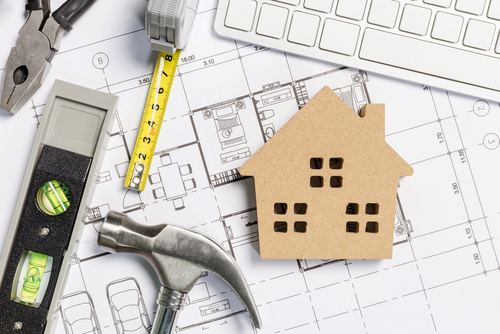
One of the easiest ways to address rental property maintenance is contacting professionals. Landlords have a ton of work on their plate, and those with multiple properties may have a hard time managing it all. Luckily, there are resources to make your job easier.
Bay Property Management Group offers comprehensive management services for your rental properties. We can take care of several tasks, including tenant screening, rental registration, rent collection, maintenance, etc.
Contact Bay Property Management Group today if you need rental management services in Baltimore, Philadelphia, Northern Virginia, Washington DC, and other surrounding counties.
